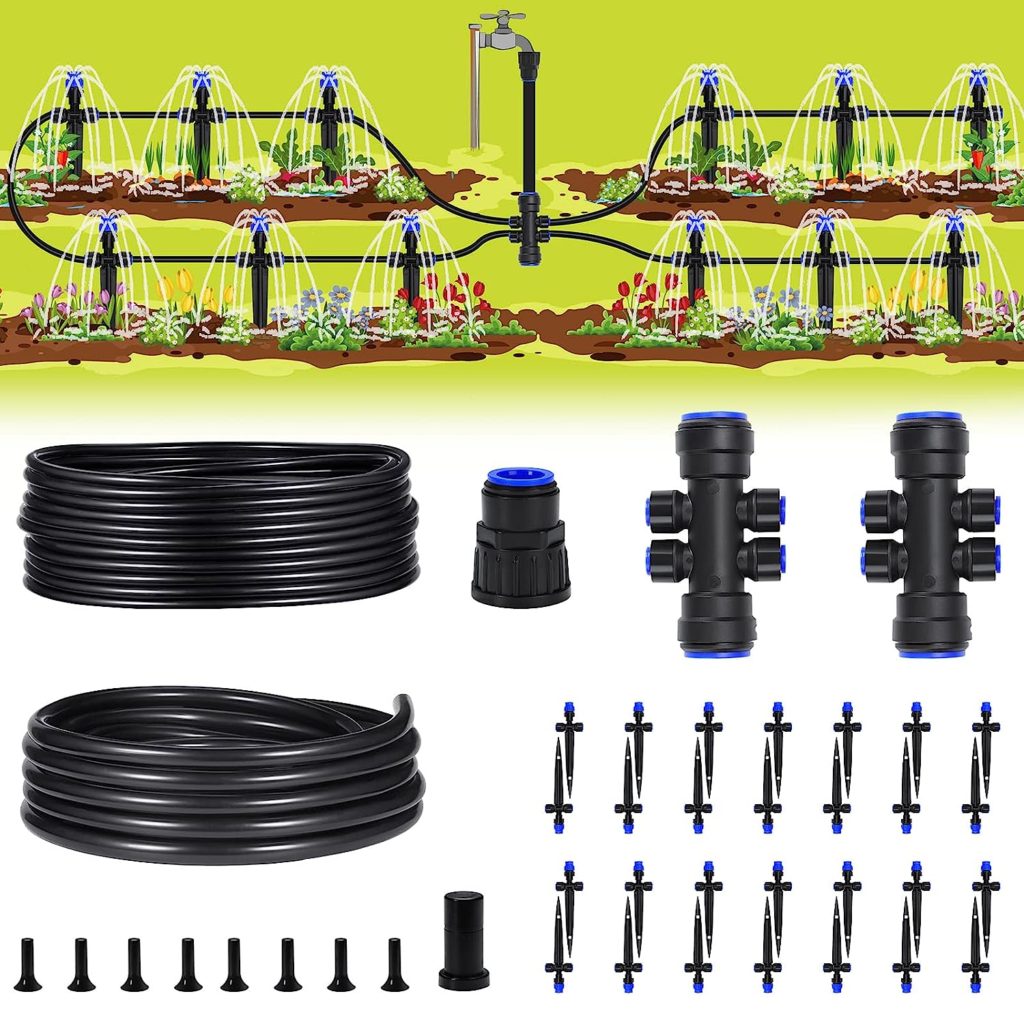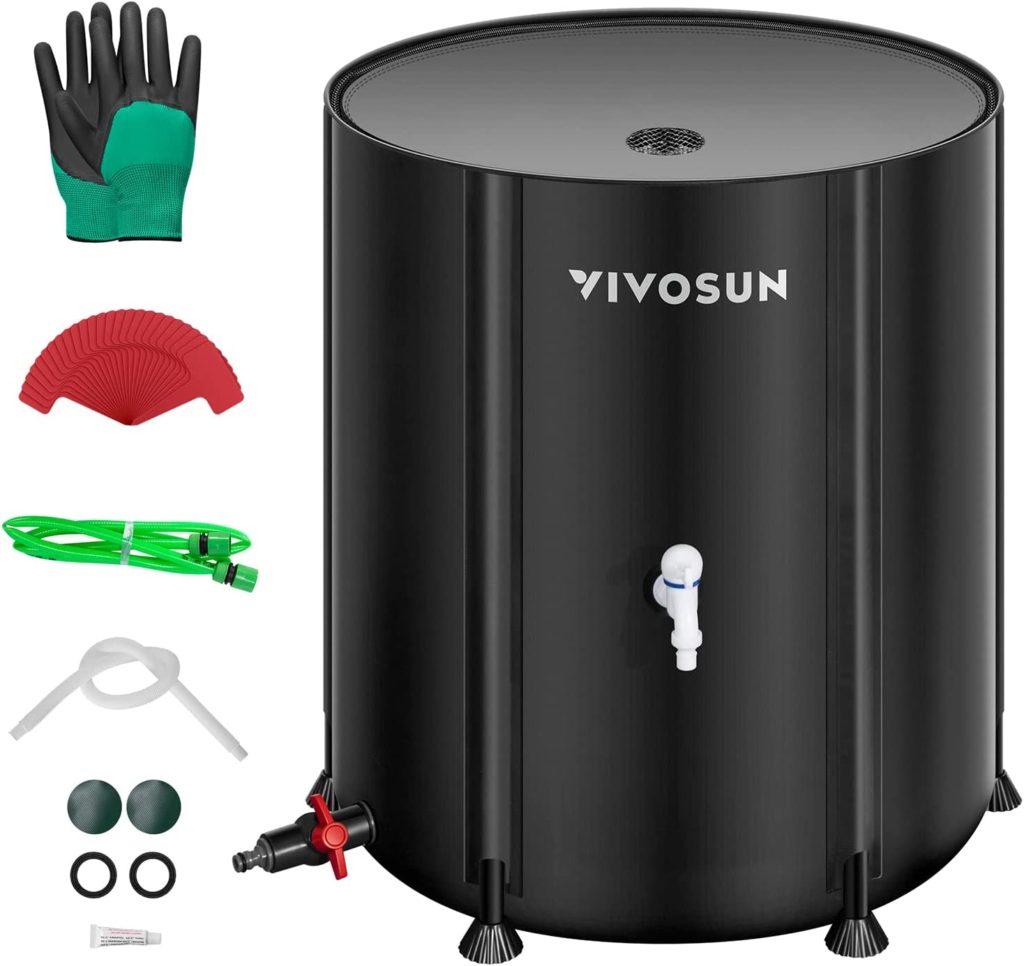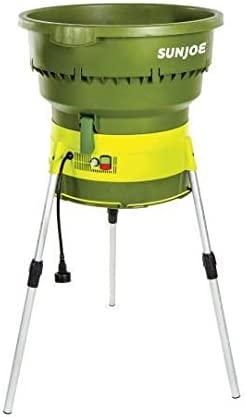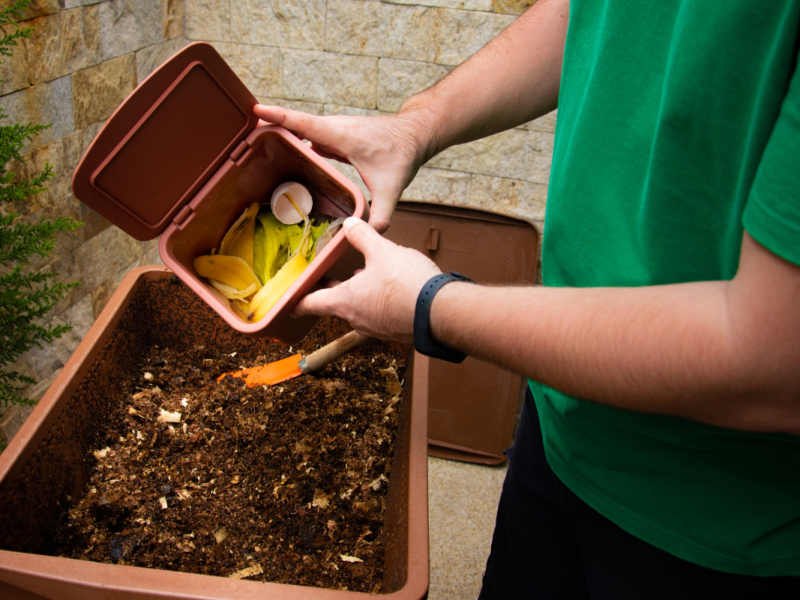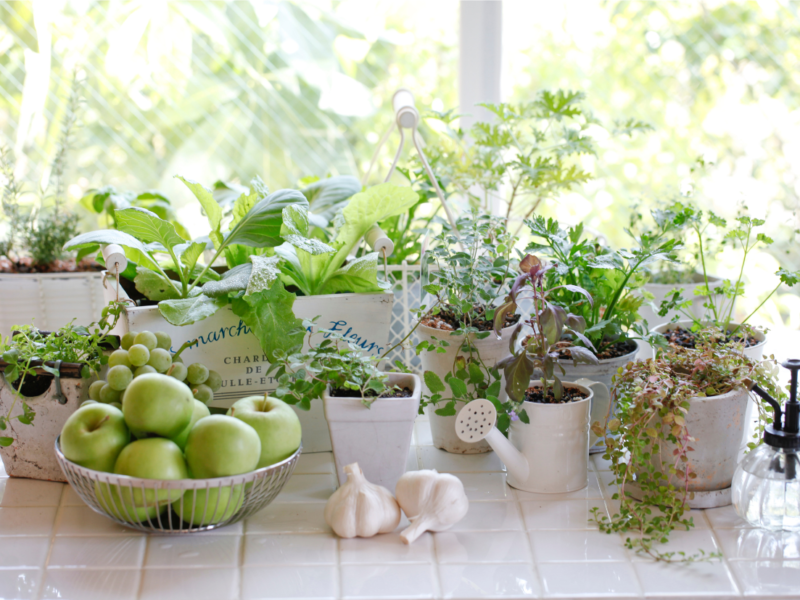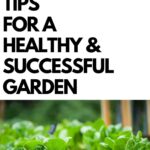Your garden needs healthy soil to produce quality food. Use these tips to have a successful garden this season!
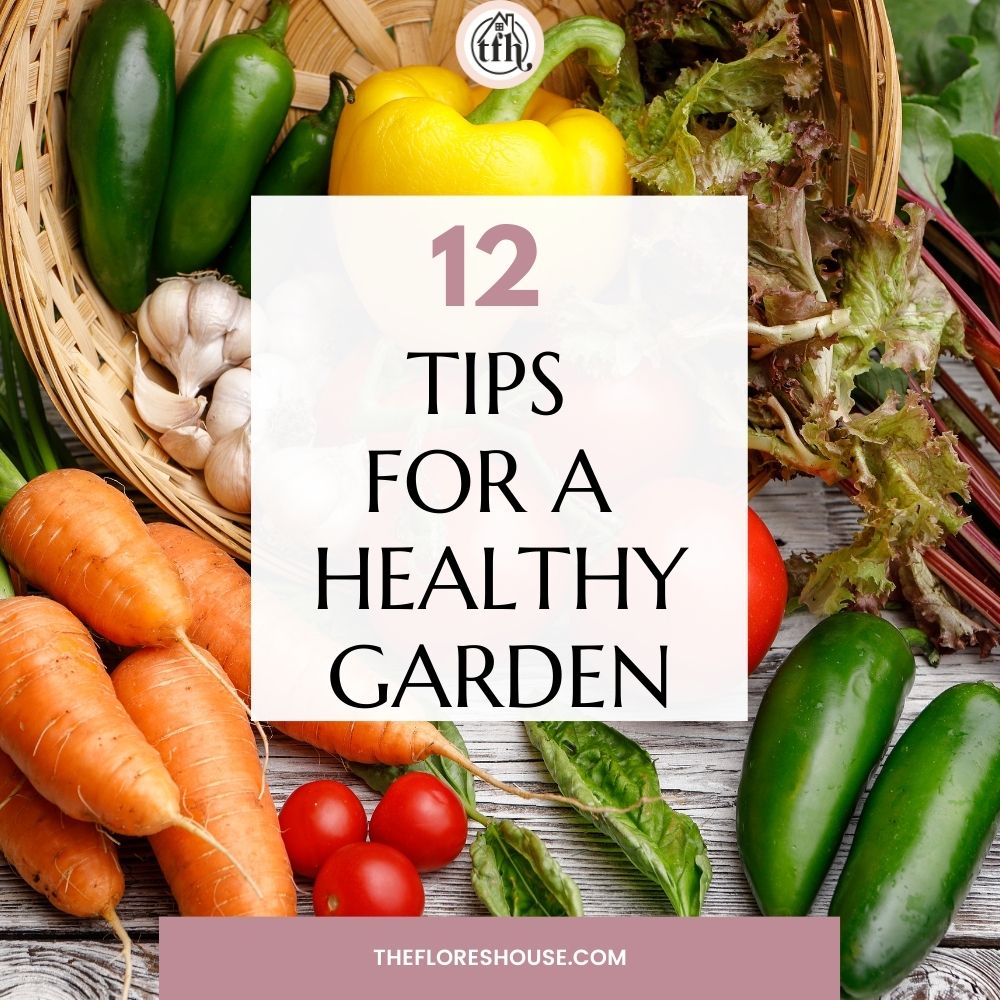
This post may contain affiliate links, which means I can receive a commission from any purchase made from the links. As an Amazon Associate, I earn from qualifying purchases. See the disclosure policy here.
Gardening is a good way to cleanse your body and soul. It also allows you to eat sustainable food you’ve grown yourself, which is always a better choice than store-bought fruits or vegetables.
Everyone should try it! So, take some time to learn how to start gardening today!
Step one to growing your garden is ensuring you have healthy soil to plant your seeds or transplants.
Healthy soil leads to healthy plants, which give us nutrient-dense food to eat, which leads to healthier living overall! So, if you’re looking to start growing your veggies, herbs, or flowers this season, here are some tips on how to grow a healthy garden and keep it going strong.
Building Healthy Soil: The Key to a Successful Garden
A flourishing garden is every gardener’s dream; building healthy soil is the secret. Like a healthy body needs nourishment, a successful garden thrives on nutrient-rich soil.
This blog post will explore the importance of healthy soil for a bountiful garden and a vibrant life. We’ll also delve into valuable gardening tips, hacks, and ideas to help you become a skilled gardener.
The first thing you need to know about having a healthy garden is how to grow healthy soil.
Healthy soil is like a teddy bear—cuddly, furry, and stuffed with nutrients. In gardening, healthy soil indicates a healthy garden overall.
Healthy soil helps create healthy plants, giving you more food to harvest yearly. Although it may initially sound complicated, many ways exist to help grow healthy plants and create a healthy ecosystem in your backyard.
Gardeners grow soil, not plants! Everything you do in your garden needs to nourish the soil. When you learn how to cultivate healthy soil, healthy plants will emerge.
Tips for Building Healthy Soil
- Never Till Your Garden!
- Build raised beds with layering methods like Back to Eden and No Dig Gardening.
- Only use natural and organic fertilizers like rabbit manure and select compost.
- Mulch around your plants with nutrient-dense plants, grass clippings, leaves, and wood chips.
- Create an In-garden Compost Bin.
Read Next: Which Raised Garden Beds Are Best?
Understanding the Significance of Healthy Soil
Healthy Soil for a Healthy Life
The connection between soil health and human well-being is undeniable. Cultivating nutrient-rich soil enhances our gardens and contributes to a healthier environment.
Healthy soil supports beneficial microorganisms, improves water retention, and gives plants essential nutrients, leading to more robust and productive gardens.
Building Healthy Soil through Composting
Composting is a cornerstone of organic gardening and an excellent way to improve soil fertility. By creating a compost pile, you can recycle kitchen scraps, yard waste, and other organic materials.
The resulting compost acts as a natural fertilizer, enriching the soil with nutrients and improving its structure.
Garden 101: Understanding the Needs of Your Garden
To be a good gardener, it is vital to understand the specific requirements of your garden. Different plants have varying needs for sunlight, water, and soil conditions.
Observing and learning about your garden’s needs can provide the ideal environment for your plants to thrive.
Sow Healthy Seeds for a Successful Garden
Get to know the types of garden seeds. Choosing high-quality seeds will save time when planning your garden for the year.
Heirloom seeds are selected from a generation of plants grown for many years. These plants are open-pollinated, which means that bees and other pollinators. They produce the same plant each generation without hybridizing with similar nearby species. Heirlooms are hardy, nutritious, and preferred among gardeners.
Organic seeds are selected from plants not grown with synthetic pesticides or fertilizers. The USDA generally certifies these seeds in America as not from genetically modified plants.
Hybrid seeds are created from cross-pollination between two plants of the same variety. You will see a lot of hybrid tomatoes on the market! Tomatoes are fun to manipulate because they have 31,760 genes! That makes for many traits like (size and shape) that can be expressed through selection.
However, heirloom tomatoes are the way to go if you prefer good taste and nutrient density.
Pro-tip: F1 means Filial 1, or first generation. Do not worry about saving seeds from an F1 hybrid plant, as the seeds will not produce true plants.
Essential Tips for a Successful Garden
- Please start with the Basics: Begin by choosing the right location for your garden, ensuring it receives adequate sunlight and is easily accessible for maintenance.
- Proper Watering Techniques: Learn how to effectively water your plants, avoiding overwatering and underwatering, to promote healthy root development.
- Weed and Pest Management: Regularly inspect your garden for weeds and pests, and employ natural, organic methods to control them without harming the ecosystem.
- Mulching: Mulching helps conserve soil moisture, suppresses weed growth, and moderates soil temperature. It also adds organic matter to the soil as it breaks down.
- Rotate Crops: Crop rotation prevents the depletion of specific nutrients and helps sustainably manage pests and diseases.
Water The Plants for a Successful Garden
Obviously, water is necessary for a successful garden, but some tricks will make a difference!
Watering is an important part of a healthy garden. If you don’t water your plants, they will die. If you water them too much, they will suffer and grow poorly.
Ensure you only water when necessary to prevent over-watering, which can cause root rot and other issues. Water each plant thoroughly at least once per week but no more than three times per week.
Pro-tip: Collect rainwater! Rain is better than tap water! Have you ever noticed how plants appear alive after a summer rain shower? Rain contains nitrates that plants use to grow lush green leaves.
Consider collecting rainwater in a barrel for plant irrigation. This is such a great way to maximize the health of your plants. Also, you would be saving water!
Organic and Natural Gardening Tips
Organic and natural gardening practices are the way for those passionate about eco-friendly gardening.
Avoiding synthetic fertilizers and pesticides, embracing companion planting, and attracting beneficial insects are all strategies that promote a healthier, more sustainable garden.
Read Next: The Best Fertilizers for Organic Vegetables
Work with the “Weeds”
Weeding takes a lot of time, but it’s essential to maintaining a healthy garden. Since weeds steal precious water and nutrients from your plants, you can starve them to death by letting them grow unchecked.
That said, I use some weeds as fill-in ground cover in my garden over the cooler months!
Chickweed is one of my favorites. In our garden zone 8A, it comes in the winter and stays until the last threat of frost has passed. It grows from an easy-to-pull taproot but spreads to fill the garden, keeping harder-to-manage weeds out!
Read Next: Tips to Prevent Weeds in the Garden
This weed may seem like a nuisance, but in my young garden, this ground cover has helped cover the roots of other vegetables and greens. With the help of chickweed, they survived a few freezing weeks of snow and ice.
Chickweed is edible and highly nutritious, and the rabbit loves it! When it is time to plant the spring garden, I pull up all the chickweed, mulch it, and return it to the garden beds for a dose of nutrition that the worms love!
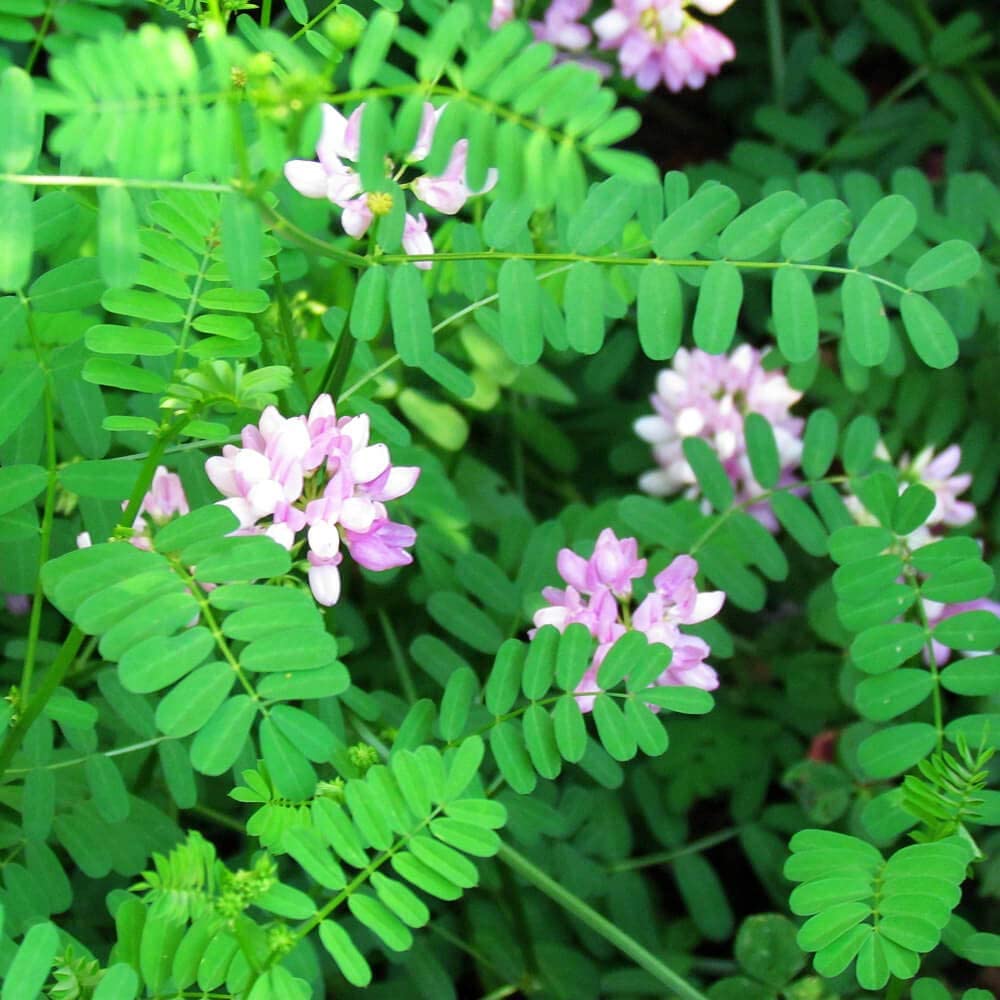
Consider Planting Ground Covers
Outside Pride
Use Organic Fertilizer to Have a Successful Garden
You might be surprised to learn that more fertilizer is not better. Over-fertilizing your plants can upset their natural balance and make them more susceptible to insects and diseases.
Instead of throwing large quantities of fertilizer at your plants every week, use a small amount regularly—and focus on organic fertilizers, like fish meal or composted cow manure.
These natural options are much better for plants and local environments than chemicals.
TFH Tips for a Healthy Garden: Natural and Organic Fertilizers
Keep A Calendar Of Gardening Activities
It might seem like a no-brainer, but keeping a calendar can help you avoid over- or under-watering your plants. By jotting down when you planted and irrigated each crop, you’ll know when to expect your flowers or veggies to begin sprouting.
Keeping a calendar also lets you track which crops require extra care, like pruning or staking.
If you are a real nerd (like me), keep a journal or notebook in your garden shed and take notes! Note the dates you plant seeds, note the weather conditions, and then you can compare data for the following year.
The best part about gardening is experimentation and growing from all my mistakes. Have fun with it! Also, a journal is a great way to remember which seeds you planted. When you have a beautiful harvest and cannot remember what you planted, you will be glad you wrote it down!
Manage Pests to Have a Successful Garden
Nothing kills a vegetable garden faster than a couple of pesky bugs. Take time to inspect your plants when they’re just starting to grow, and identify any areas where pests are likely to congregate.
Create traps for them, or use organic pest control if you prefer that method. Either way, get them out of your garden before they have a chance to destroy your hard work!
Plant Companion Plants Together
Polyculture is a method of growing different plants to enhance each other’s growth.
For example, plant a carrot next to some celery or onions, attracting pollinators and beneficial insects to your vegetables and fruit trees.
This makes companion planting an excellent technique for organic farming and gardening.
Also, try planting flowers in your garden around vegetables to attract beneficial insects, butterflies, and birds, which will keep pests at bay while improving pollination on all your plants.
For example, tomatoes and marigolds make great companions!
Download our free guide about companion plants!
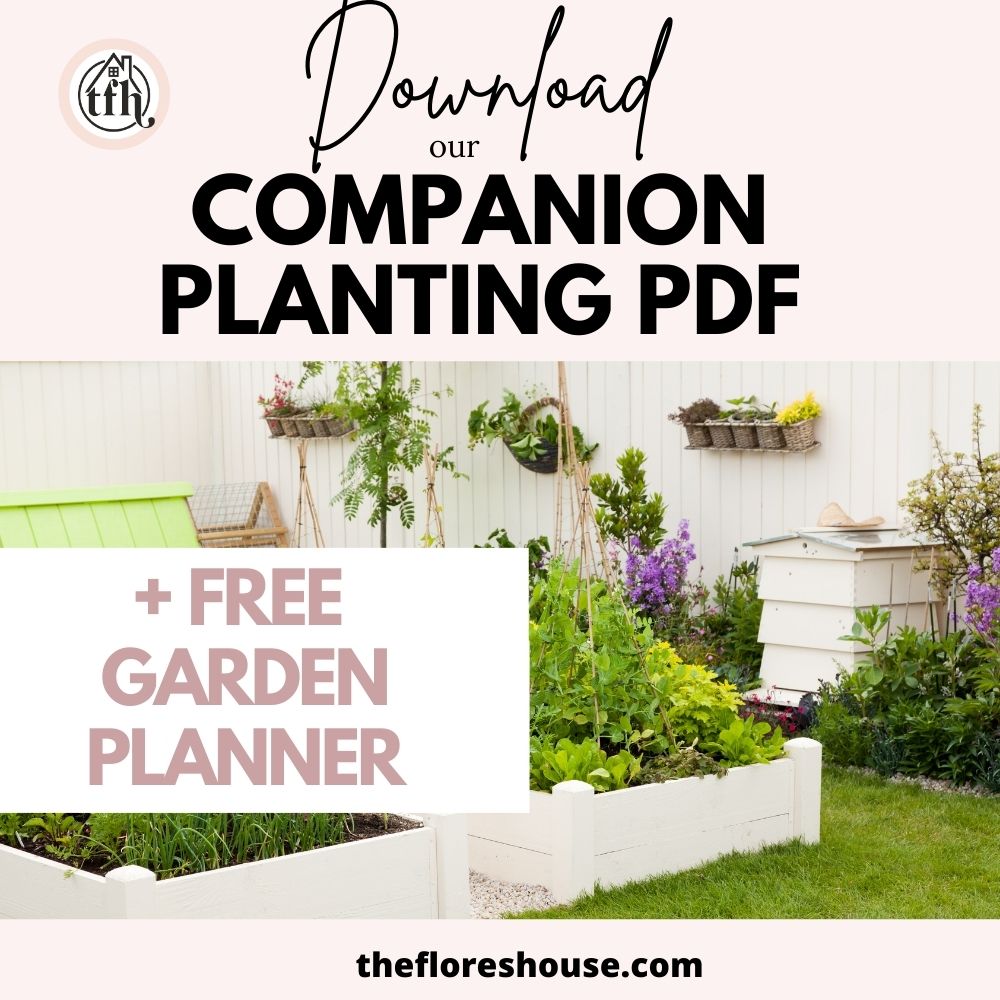
Diversity is Important for a Healthy and Successful Garden
Diversity is vital to a well-functioning ecosystem. Your garden is no different. Row-by-row gardening is a thing of the past.
A healthy garden benefits from healthy biodiversity that includes many species: insects, worms, animals, plants, microbes, and fungi. Planting several types of plants together can improve soil quality and plant production and reduce pests.
Add Nutrients Back to the Garden: Mulch with Grass Clippings
Mulching your garden can help keep weeds down and help retain water, but you don’t have to spend money on mulch—just mulch with grass clippings from previous mowing.
Mulching with grass clippings is an excellent and cost-effective way to enrich your garden soil and promote healthy plant growth.
Instead of discarding grass clippings after mowing, you can repurpose them as mulch. Grass clippings act as a natural barrier, helping to retain soil moisture, suppress weed growth, and regulate soil temperature.
As the clippings break down, they release valuable nutrients into the soil, providing a steady and organic source of fertilization for your plants. When using grass clippings as mulch, spread them thinly and avoid creating thick layers that could suffocate your plants.
Additionally, it’s crucial to use clippings from lawns that haven’t been treated with herbicides or pesticides to ensure the health of your garden.
You can conserve resources, enhance soil fertility, and create a thriving garden space by mulching with grass clippings.
Spend Time Observing Your Garden’s Ecosystem
I hope you have a chair or bench in your garden. It is a sanctuary for me. Everyone needs a place to relax and find peace. Also, paying attention to how your garden is doing is essential.
However, life can get busy, and you might not want to check in every other day.
If you can’t get outside every day, aim at least once a week to see what is working and what isn’t.
This will help you determine if any changes need to be made and inspire you for future tasks!
Apply Permaculture Principles to Have a Successful Garden
Considered a subset of ecological design, permaculture is a way of growing plants and animals with each other.
Some elements of permaculture that can be applied to your garden include intercropping (planting flowers among vegetables and herbs), companion planting (placing plants that benefit each other next to one another), and mulching (an age-old practice that involves covering bare soil with non-compostable material).
More of the Best Successful Gardening Tips for Beginners
Starting a garden can be intimidating for beginners, but it becomes an enjoyable and rewarding experience with the right guidance. Here are a few tips to help new gardeners get started:
a. Start small: Begin with a small plot or container garden to gain confidence and learn the basics.
b. Research and Plan: Understand the requirements of the plants you want to grow and plan your garden accordingly.
c. Learn from Others: Join gardening communities, seek advice from experienced gardeners, and learn from their expertise.
d. Embrace Failure as a Learning Opportunity: Gardening is a journey of trial and error. Learn from your mistakes and adapt your approach.
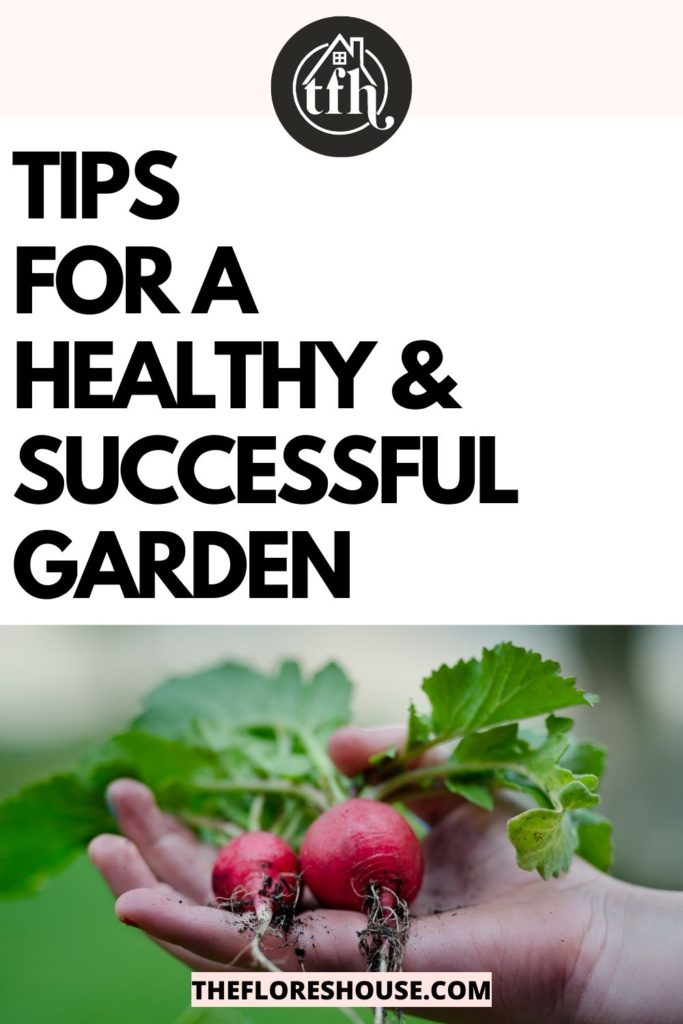
Building healthy soil forms the foundation of a successful garden and a healthier life. You can create a thriving garden ecosystem by enriching your garden with nutrient-rich soil, composting organic materials, and adopting organic gardening practices.
With the right knowledge and dedication, anyone can become a skilled gardener and experience the joy of growing their food and nurturing a vibrant garden. So, grab your gardening tools and embark on this fulfilling journey towards a greener thumb and a healthier life.
This post showed the best tips for growing a healthy and successful garden.

